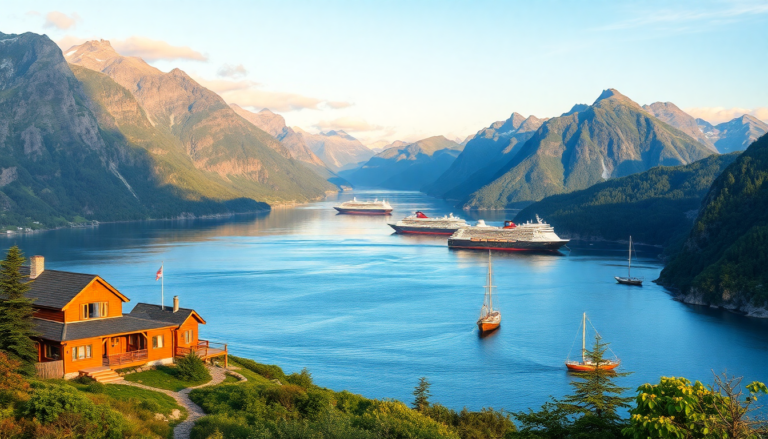Argomenti trattati
Norway has recently implemented a lodging tax aimed at managing the record levels of tourism the country is experiencing. This initiative is a response to the growing concerns surrounding overtourism, particularly influenced by the rising number of cruise visitors. With millions flocking to see the breathtaking fjords, the government has taken steps to ensure that local communities are not overwhelmed by the influx of tourists.
Understanding the lodging tax
The lodging tax is becoming increasingly common across various European countries, including Spain, France, and Italy. Norway’s approach, however, introduces a unique flexibility. The tax is not mandatory across the board; instead, it is optional for municipalities. This means that popular tourist destinations, such as the Lofoten Islands and the picturesque town of Geiranger, can decide whether to adopt the tax. The revenue generated from this tax is intended to support local infrastructure and public services that are strained by the high volume of visitors.
Each municipality will have the autonomy to determine if and how the tax will be implemented. Local authorities are encouraged to collaborate with the tourism industry to allocate funds effectively. According to the parliamentary proposal, the proceeds must go toward public goods associated with tourism, such as maintaining trails, providing public restrooms, and ensuring proper waste management.
The impact of tourism on local communities
In the wake of a record number of overnight stays—over 38 million in a recent period—Norway’s remote communities have faced significant challenges. These areas, often with small local populations, experience seasonal surges of visitors that can strain resources and infrastructure. The legislation was developed after extensive public consultations, where stakeholders expressed concerns that the initially proposed tax rate of 5% was excessive. Consequently, the lodging tax has been set at a more manageable rate of 3%.
To illustrate, a 3% tax on a hotel room costing 140 euros per night would add an additional cost of approximately 4.10 euros. This tax currently applies only to visitors staying in hotels, apartments, or campgrounds, meaning that cruise passengers, day-trippers, and campers utilizing public areas for overnight stays are exempt from this charge. This has caused some concern among local hotel operators who feel that other segments of the tourism industry, particularly those responsible for greater challenges, are not being held accountable.
The broader context of overtourism
The phenomenon of overtourism has become a pressing issue for many popular travel destinations globally. With the increase in cruise tourism contributing significantly to the number of visitors, Norway is now at a crossroads. This new lodging tax is part of a larger strategy to ensure that tourism remains sustainable and beneficial for both visitors and local communities. The government’s proactive stance is crucial in addressing the balance between attracting tourists and preserving the quality of life for residents.
Norway’s initiative reflects a growing trend among nations to implement measures that protect their natural environments and local cultures from the adverse effects of mass tourism. By encouraging responsible tourism practices and providing local authorities with the tools they need to manage visitor impacts, Norway hopes to set a precedent for other countries grappling with similar challenges.
Frequently asked questions
- What is the purpose of the lodging tax in Norway? The tax aims to manage tourism by providing funds to improve local infrastructure and services.
- Who is affected by this tax? The tax applies to visitors staying in hotels, apartments, or campgrounds but excludes cruise passengers.
- How will the tax revenue be used? It will fund public goods related to tourism, such as waste management and trail maintenance.
- Why is there criticism regarding the tax? Some stakeholders are concerned that it does not address all areas of tourism, particularly cruise-related impacts.

